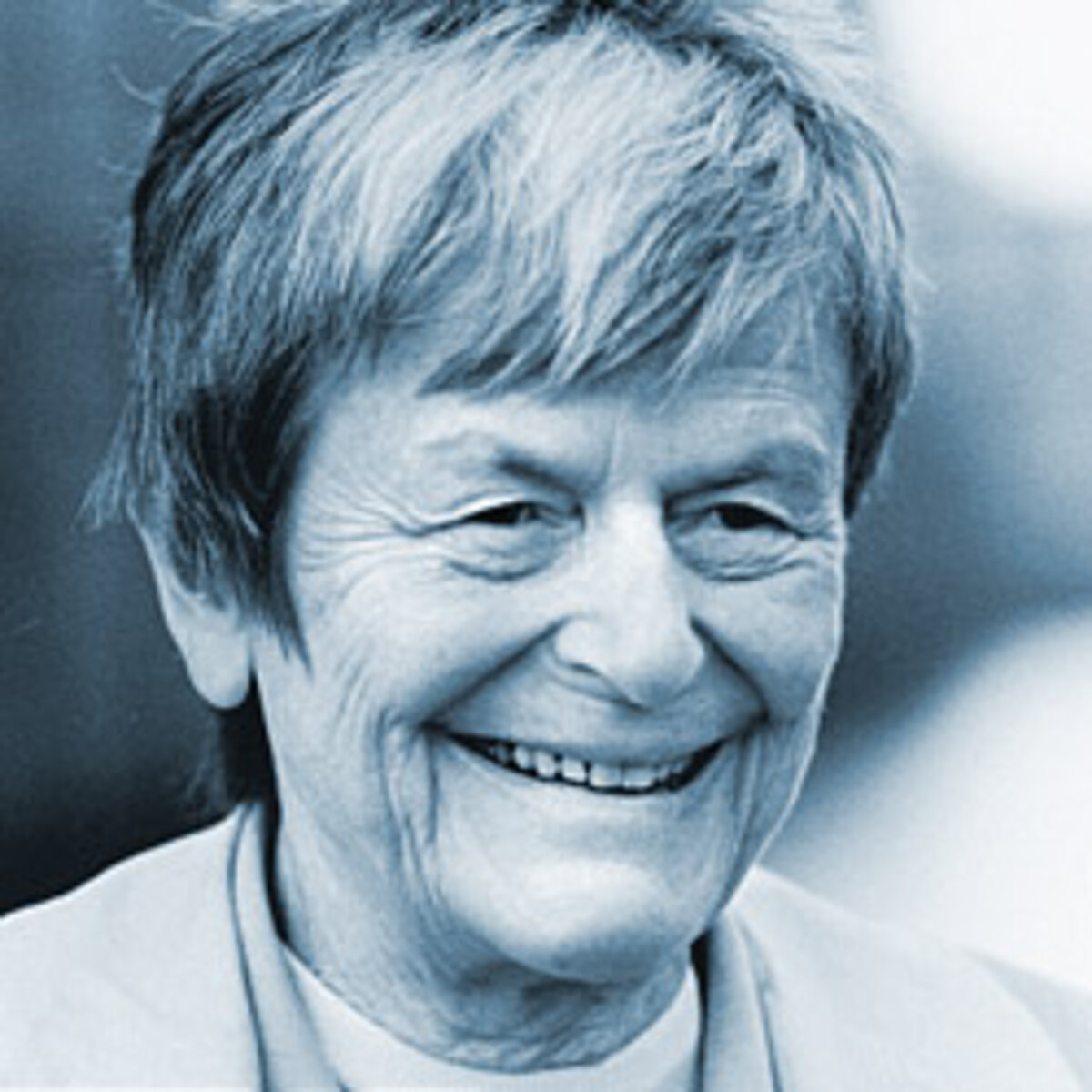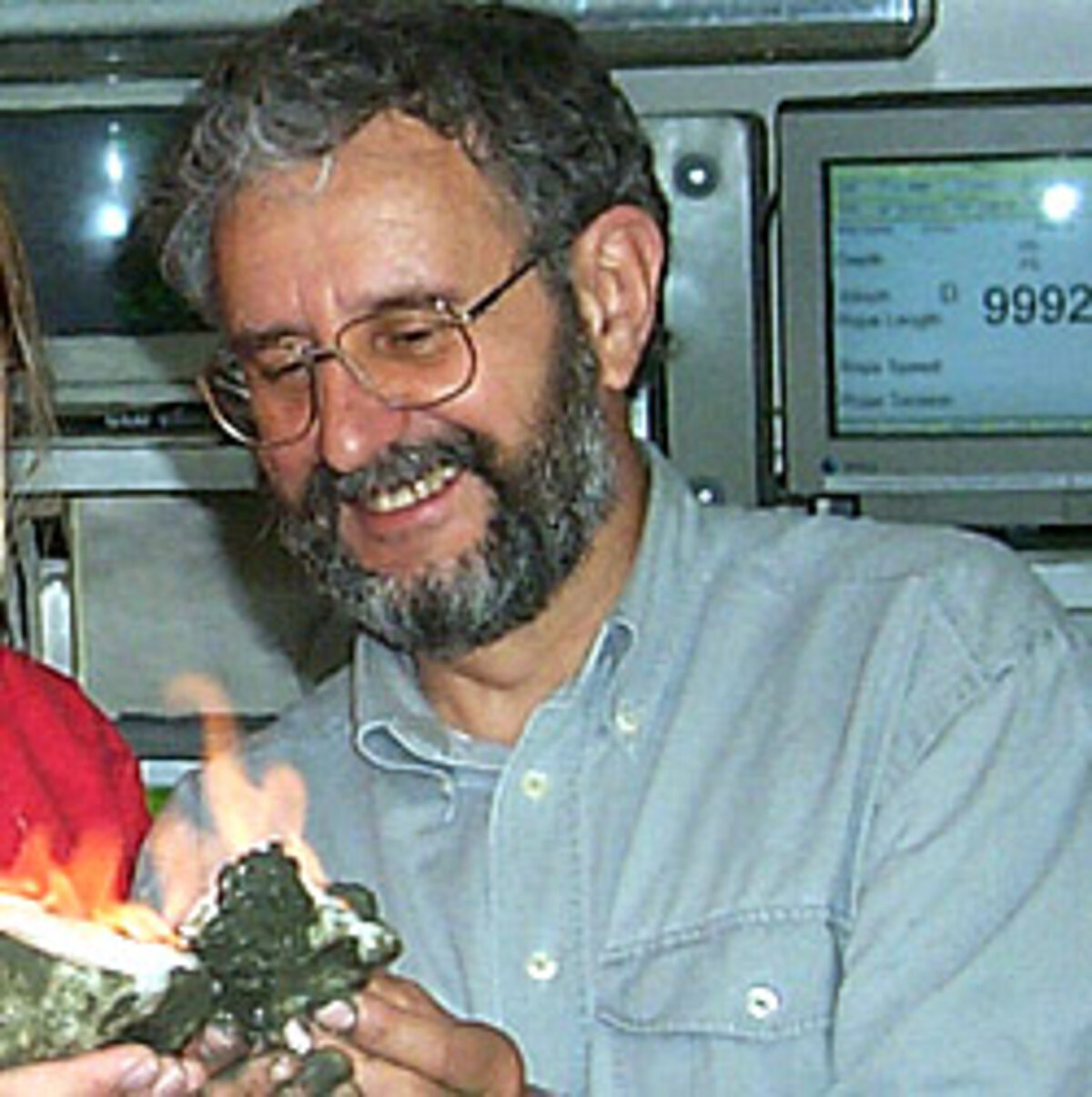![[Translate to English:] Visual EMB-Meerespreis 2006-2009](/fileadmin/_processed_/8/6/csm_visual-emb-meerespreis-2006-2009_3b9791f1d6.jpg)
Elisabeth-Mann-Borgese-Meerespreis 2006 to 2009
In 2006, the state government of Schleswig-Holstein established the Elisabeth-Mann-Borgese-Meerespreis to highlight ways to ensure the responsible and sustainable use of the seas, and to recognize outstanding efforts by individuals campaigning to that end. With a value of €20,000, the prize was financed by Mare-Verlag, GEOMAR, the Lighthouse Foundation, and Nordwestlotto GmbH. Besides scientists, prizewinners included Prof. Dr. Klaus Töpfer, Prof. Dr. Biliana Cicin-Sain, best-selling author Frank Schätzing, and EU commissioner Dr. Joe Borg, all of whom were recognized for their political and civic commitment to sustainable ocean management.

Foto: Heike Ollertz/ Agentur Focus
In memoriam Elisabeth Mann Borgese (1918-2002)
Believing that “we need to save the seas if we are to save ourselves”, the marine scientist Elisabeth Mann Borgese founded the International Ocean Institute in Malta in 1972. It and its founder made significant contributions to the United Nations Convention on the Law of the Sea in 1982. As the first - and for quite some time the sole - woman in the ‘Club of Rome’, she drew attention to the threats facing the marine ecosystem. It is essentially thanks to her campaign work that in maritime law the world’s oceans are now held to be the common heritage of humanity, and that the International Tribunal for the Law of the Sea opened in the German port city of Hamburg in August 1996.
Prizewinners in 2006

Photo: GEOMAR Archive
Prof. Dr. Erwin Suess
Erwin Suess was awarded the Elisabeth-Mann-Borgese prize for his internationally recognized scientific papers in the field of marine geoscience. An award-winning oceanographer, Suess has made significant contributions to investigations of ocean processes. He is a European pioneer of research into gas hydrates, and has helped Germany achieve a leading position internationally in this promising area of research

Photo: Stephan Röhl (CC BY-SA 2.0)
Prof. Dr. Klaus Töpfer
In recognition of his political and campaign work on behalf of the marine environment and its protection, the former executive director of the United Nations Environment Programme (UNEP) and former Federal Minister for the Environment in Germany, Klaus Töpfer was chosen as the honorary recipient of the Elisabeth-Mann-Borgese prize. In various offices and functions, he has shown himself to be a feisty pioneer and an active lobbyist for the marine environment whose protection he steadfastly pursued as the number one environmentalist at the United Nations.
Prizewinners in 2007

Photo: Danny Abriel
Prof. Dr. Boris Worm
Boris Worm was awarded the Elisabeth-Mann-Borgese prize for his outstanding analysis and evaluation of overfishing and the importance of biodiversity in the marine environment. Worm studied marine biology at Kiel from 1990 to 1996, and worked at the city’s oceanographic institute (IfM) as a doctoral candidate between 1997 and 2000. In 2004 he was appointed Professor of Marine Biology at Dalhousie University in Canada. His scientific papers have won many him awards.

Photo: Private
Prof. Dr. Biliana Cicin-Sain
Biliana Cicin-Sain was the honorary recipient of the Elisabeth-Mann-Borgese prize, awarded in recognition both of her role as organizer and co-chair of the Global Forum on Oceans, Coasts and Islands, and as director of the Gerard J. Mangone Center for Marine Policy at the University of Delaware. She is a seasoned campaigner for fair ocean management policies. Born in Italy, she spent her early childhood in Argentina, and later moved to the United States.
Prizewinners in 2009

Photo: Raimond Spekking (CC BY-SA 4.0)
Frank Schätzing
Frank Schätzing was awarded the Elisabeth-Mann-Borgese prize for his skilful blend of marine science and fiction in a novel for which he undertook in-depth research at GEOMAR. Drawing on the latest marine research and contexts that illustrate in narrative form the special role the oceans play in human lives, The Swarm has become a bestseller, with over four million copies sold; translated into eighteen languages, it has found a wide international readership.

Photo: GEOMAR Archive
Dr. Joseph Borġ
Formerly the foreign minister of his native Malta, Joseph (Joe) Borg was honoured for his commitment to ensuring an integrated approach to maritime policy in the EU. As its first commissioner for Maritime Affairs and Fisheries, he focused on delivering an integrated maritime policy for Europe. Thanks to his efforts, maritime policies in Europe developed within five years from discrete national policies into an exemplary, integrated policy area for the EU as a whole.

Foto: GEOMAR Archive
Prof. Dr. Hans Hass
Hans Hass received the Elisabeth-Mann-Borgese prize for his life’s work and his pioneering achievements as one of the first research divers and underwater filmmakers. He contributed to the development of flippers and underwater breathing apparatus, and was also involved in the production of the first underwater cameras. With his blend of nature documentary and adventure film, Hans Hass helped to make the marine environment accessible to people in their own homes. In the 1950s and 60s, he produced over 100 underwater documentaries, and for the first time gave viewers access to marine creatures that until then had been as alien to them as beings from another world.


